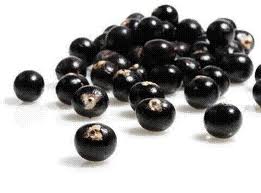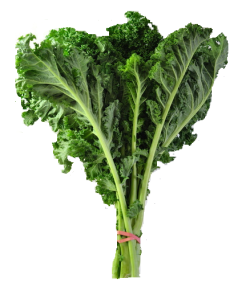We’ve all heard about superfoods, they’re these powerful ingredients from all sorts of hidden places around the world with amazing nutritional benefits, right???
Wrong.
“Superfoods” (and I use this term loosely) is simply a phrase used to describe some ingredients that are fairly healthy and will provide some nutritional benefit to the body, however this particular term has placed a number of foods into a group of their own, claiming nothing but a world of benefits for your health and wellbeing. Before I go any further let me say that the foods encompassed under this label can very well be nutritionally beneficial; what concerns me is the idea that they are superior to other nutritious foods and should therefore be marketed at a higher price point compared to your average piece of fruit or veg. This appears to be a very clever marketing trick, but why would you choose to buy “superfoods”?
Let me pinpoint some of the specific foods this term covers and let you decide…
Acai and Goji berries: There’s been so much hype over these two types of berries, without a significant amount of legitimate scientific evidence to back up all the claims made about them. Both berries contain antioxidants (which minimise or stop the damage to cells caused by “free radicals”) and are said to have anti-cancer effects – quite a claim to be making if you ask me. They contain a whole host of vitamins and minerals including vitamins A, E, calcium, magnesium and potassium, as well as having anti-inflammatory affects (Acai), anti-ageing effects and contributing to a reduction in cholesterol and triglyceride levels (Goji). I don’t doubt that these two berries have some positive effects on the body, however they do come at quite a price – around $6.70 for a 150g packet of Goji berries. To put that in perspective, an apple containing very similar nutrients, if not more would set you back around $5 for a kilo of apples (approximately 6 or 7 apples). Not only is that a huge saving but they contain significantly less kilojoules (218kJ per 100g compared to 1,280kJ per 100g in Goji berries), around 5 times less sugar and they taste great! If you are willing to spend the money on Acai or Goji berries then by all means do, but you can find Goji berries (also called ‘Wolfberries’) at some Chinese herbal shops for much less $$$.
Kale: A dark green, leafy vegetable comparable to cabbage, Kale (or Cavolo Nero as the Italians refer to it – translating to “Black Cabbage”) has become a very popular ingredient to use, whether it be in salads, soup, stews, juices, steamed as a side dish or made into chips (yes, chips!). Its popularity of late has placed it under the “superfood” umbrella and is said to be the ideal food for vegans, as it contains more iron than beef and more calcium than milk, per calorie. A number of other desirable attributes including its positive effect on cholesterol levels and its anti-inflammatory properties have it sitting on a pedestal, but unfortunately it’s not one of nature’s tastiest foods. Kale needs a little help to enhance its flavour and some great ideas include kale chips and putting it in sauces and pastas and also adding herbs and spices when cooking with it. It’s undeniable that Kale is of great nutritional benefit in the diet and its low kilojoule and fat content and high fibre makes it a healthy yet filling option in meals. One thing to bear in mind is that it contains fat soluble vitamins A and K. In order to obtain these nutrients from Kale it must be in the presence of fats to be utilised in the body, so cooking it in a little bit of olive oil is a good thing. If you’re big on juices and smoothies you could try adding it to those, (although personally I prefer a good old berry smoothie) nevertheless you can’t really go wrong with Kale. It’s a great food for vegetarians and vegans and is relatively inexpensive so I recommend giving it a go in your next meal.
Coconut Oil: An ingredient I’ve previously posted about, check out the facts about this ingredient
Quinoa: Again, an ingredient I’ve previously researched and posted about
Chia: High in omega 3 fatty acids, the chia seed is an excellent way of getting an extra nutrient boost in your diet, whether it be added to smoothies, breads, sprinkled over your morning porridge or even used as an egg replacement in baking! Although it may be marketed under the name Chia, it is most likely that you are purchasing Salba seeds (LINK). These are very similar to chia in both nutrients and function, however Salba is deemed superior to Chia, containing additional nutrients and providing a consistent nutritional composition due to stricter growing practices. An easy way to tell is that chia seeds are black, whilst salba are white. Salba seeds are high in omega 3s, fibre, protein and a number of micronutrients. As dietitan Caroline Trickey so aptly puts it; “A seed is a whole food. You’re getting a package of nutrients and fibre”, which ultimately means that there is no processing involved depleting it of nutrients, as you may get with refined chia products such as flour and chia oil. The main issue I have with chia seeds is simply the price; a 250g packet costs $10, that’s $4 per 100g. It may not sound like much but when you need to consume a significant amount of the seeds to obtain a beneficial number of nutrients, it all adds up. That being said, I do think that they are a valuable addition to snacks and meals. I wouldn’t go as far as to say I’ll be using it as an egg replacer but all in all chia seeds are not an unhealthy option and could make a nourishing addition to your meals.
As you may now be able to tell, the foods described above are mostly plentiful in nutrients for good health, but don’t buy them for their “unique and healing properties”. They’re equivalent to most fruit, veg, and legumes and unless you particularly enjoy consuming or using any of them, I wouldn’t suggest handing over a day’s pay for those particularly expensive products (metaphorically speaking, of course). I’m sure many people wish there was a quick fix solution when it comes to achieving optimum health, and hearing about “superfoods” leaves you with a glimmer of hope but unfortunately this just isn’t the case. Trying different foods, flavourings and cooking methods is (in my opinion) still the best way to enjoy your food and reap the rewards of good health without breaking the bank.
Ultimately, whilst I strongly and firmly believe in choosing to consume healthful and fresh foods to sustain and nourish the body, I don’t believe in putting particular foods on a pedestal. There are most definitely a plethora of delicious and nutritious ingredients out there, but there is certainly nowhere near enough evidence to justify charging three times the amount of money for a “superfood” that may or may not prevent or cure numerous illnesses. So I think for now I’ll stick with my regular fresh fruit, veg and legumes.
To further debunk the “superfood” craze, take a look at this video from ‘The Checkout’, an excellent overview of what superfoods really are!




Hey Jo
I only heard about the Kale when ive been watching the food channel , and all the Americans chefs were big on useing it and raveing about how good it was ,especially in the deep south i spoke to nana and guess what she alredy new about it , should have known ! i dont see it much here in the uk in the supermarkets so not sure its a regular thing grown , i love reading your post well done keep up the good work informing us all.x
Hi Uncle Jeff!
It’s pretty similar to spinach so you could always substitute with that if you were cooking with it but it’s definitely becoming more popular so I’m sure it’ll be in more supermarkets soon. Thanks so much, glad you enjoy reading them! x
I’d be interested to hear your thoughts on tumeric. It’s been regularly mentioned as a potent antioxidant and a significant weapon in the fight against cancer.
Very true, it has definitely made a name for itself in regards to being an antioxidant. I’m currently writing a post on herbs and spices and will definitely look at including some information about it, thanks!